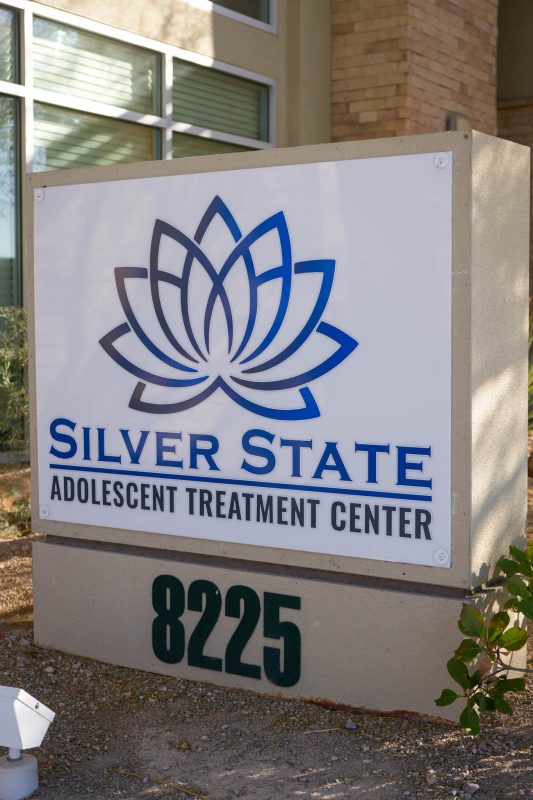Teen School Refusal Residential Treatment Program
What We Do

Behavioral Therapy

Trauma-Informed Care

Holistic Treatment Therapy
School Refusal or School Avoidance Treatment Program for Teens
School refusal, also known as school avoidance, is more than just skipping class or occasional reluctance. It’s a serious emotional and behavioral concern that can disrupt a teen’s education, social life, and mental health. It’s often rooted in deeper issues like anxiety, depression, trauma, or bullying.
At Silver State Adolescent Treatment, we provide a residential program designed to uncover and address the emotional drivers behind school refusal. Our structured, supportive environment allows teens to step away from academic pressure while receiving the therapy and support they need to re-engage with learning.
We help teens reduce school-related anxiety, build coping skills, and restore self-esteem—so they feel safe, empowered, and ready to return to school with confidence and stability.


What is School Refusal or School Avoidance?
School refusal is a pattern of avoiding school that may include frequent absences, emotional distress on school days, or refusal to attend classes altogether. Unlike truancy, school refusal is typically driven by emotional distress, not defiance.
Common causes include social anxiety, academic overwhelm, bullying, depression, trauma, or fear of failure. Teens may experience physical symptoms like stomachaches or panic attacks in response to school-related stress. Without treatment, school avoidance can lead to falling behind academically and withdrawing socially.
At Silver State, we work to uncover the emotional root of school refusal and create a path forward through therapy, structure, and support. We help teens build confidence in their ability to cope with school—and life.
Signs and Symptoms of School Refusal or School Avoidance in Teens
School avoidance can show up in different ways depending on the teen and the cause. The key sign is persistent difficulty attending school that causes emotional or functional disruption.
Signs may include:
Frequent complaints of physical illness on school days
Panic attacks or anxiety before school
Refusing to leave the house or get ready for school
Falling grades or missed assignments
Withdrawing from friends or activities
Emotional outbursts tied to school discussions
Depression, anxiety, or fear of failure
Isolation or increased screen use
If your teen is struggling to attend school due to emotional overwhelm, professional treatment in a structured residential setting can provide the tools and healing space they need.


Why Individualized Plans Matter for Teens with School Refusal
Every teen’s school refusal is rooted in a different emotional experience. That’s why we take the time to understand the “why” behind the behavior through a comprehensive assessment process. From there, we build a personalized treatment plan that supports emotional healing and academic re-engagement.
Our plans may include individual therapy, group therapy, academic tutoring, exposure-based strategies, family therapy, and psychiatric support. We teach practical coping skills, improve executive function, and create daily structure that mimics school routines in a safe, therapeutic way.
Family involvement is key to long-term success. We support caregivers in understanding what their teen is going through and in helping to reinforce a healthy academic environment at home.
The Silver State Adolescent Approach
At Silver State Adolescent Treatment, we help teens face the fears that are keeping them from school—and give them the tools to overcome them. Our residential program creates a consistent, compassionate environment where teens can build emotional strength and academic readiness.
We use a combination of evidence-based therapy, emotional regulation training, peer interaction, and academic reintegration strategies to reduce anxiety and avoidance. Our licensed therapists and academic specialists work together to support progress in both emotional and educational growth.
We don’t just help teens go back to school—we help them return with confidence, resilience, and the tools they need to succeed long after treatment ends.
Contact Silver State Adolescent Treatment
Please fill out the form to get started and someone from our admissions team will be reaching out to you shortly.

Teen Disorders Silver State Adolescent Treats
FAQs About Teen School Refusal Residential Treatment
No. School refusal is emotionally driven and often tied to psychological distress—not rebellion or defiance.
It’s not a disorder on its own but is often a symptom of underlying mental health conditions.
Frequent complaints of illness before school, anxiety about attending, tardiness, missed days, or panic attacks.
Yes. We have a fully accredited academic program within the residential setting.
No. It’s typically a response to emotional distress, not a conscious attempt to avoid responsibility.
Not without help. Early intervention greatly improves outcomes.
Unlikely. Most teens want to succeed but feel emotionally unable to face the demands of school.
For many teens, yes. When outpatient therapy hasn’t worked, residential care provides structure and intensive support.
Get Started
At Silver State Adolescent Treatment, we understand how important your questions and concerns are. For immediate assistance or detailed inquiries, please fill out our contact form so our team can respond quickly.
Our compassionate staff is here to provide personalized support tailored to your teen’s needs.
You can also reach us directly using the contact information below. Together, we’ll take the first steps toward your teen’s mental health and recovery.





